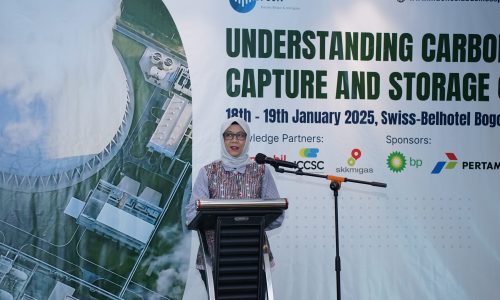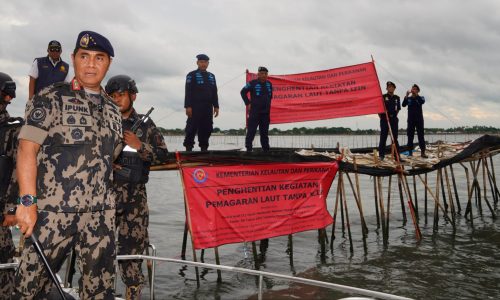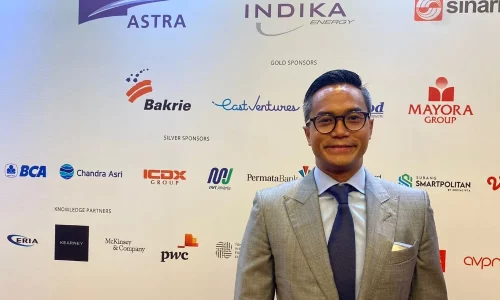The government continues to strengthen its commitment to reducing carbon emissions through the implementation of Carbon Capture and Storage (CCS) and Carbon Capture, Utilization, and Storage (CCUS) technologies in the upstream oil and gas sector.
This strategic step is expected to provide a significant contribution to achieving the Net Zero Emission (NZE) target by 2060.
Vice President for Business Support and Lead of Carbon, the Upstream Oil and Gas Regulatory Task Force (SKK Migas), Firera, cited that currently a number of CCS/CCUS projects are in the development stage.
“The Abadi CCS project in the Masela Block, with a carbon storage capacity of 3 gigatons of CO2, and the Ubadari CCUS with a capacity of 1.8 gigatons of CO2, are scheduled to start operating in 2030 and 2029,” hetold the opening session of Journalism Workshop: Understanding CCS held by Indonesia Business Post, on Saturday, January 18, 2025.
Other projects such as CCUS Sukowati, Jatibarang, and Gemah are also undergoing further studies to support emission reductions from the energy sector.
In line with these efforts, the Indonesian government has established a regulatory framework to accelerate the implementation of CCS/CCUS technology. These regulations include Presidential Decree No. 14/2024, which provides a legal basis, and SKK Migas Work Guidelines No. PTK-070/2024, which regulates the implementation of this technology in contractors’ work areas.
However, a number of challenges hinder the implementation of this technology. High investment costs, the need for environmental permits, and cross-agency coordination are the main obstacles.
“In addition, public awareness and community support for CCS/CCUS also need to be increased to ensure long-term success,” Firera cited.
With a national carbon storage potential estimated at 577.77 gigatons of CO2, Indonesia has a great opportunity to become a center for CCS development in Southeast Asia. This effort will not only support the achievement of national emission targets, but also attract sustainable investment and create economic value in the energy sector.
The CCS/CCUS project is part of Indonesia’s grand strategy in integrating a sustainable energy transition with economic growth. The government hopes that the acceleration of this technology can encourage Indonesia to become one of the leading countries in reducing carbon emissions in the region.
This journalism training event is supported by ExxonMobil Indonesia, bp Indonesia, State energy company PT Pertamina, State power utility PT PLN, Medco Energy International, Indonesia CCS Center and Upstream Oil and Gas Regulatory Task Force (SKK Migas).










